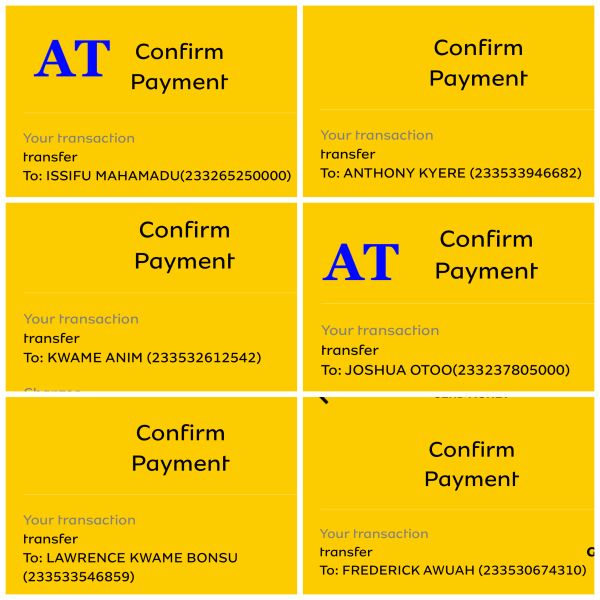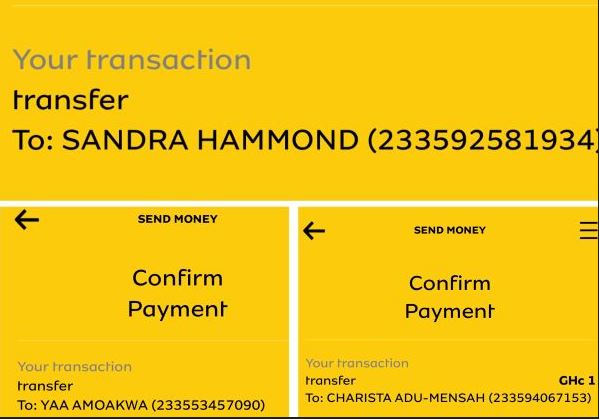
It has been more than one month since the telecom operators in the country disconnected all fraudulently registered, unregistered and partially registered SIM cards in the country, under the directive of the National Communications Authority (NCA), and yet there are still several SIM cards being used by fraudsters and the authorities are unable to trace them.
The mass SIM disconnection supposedly affected some nine million SIM cards, including over 280,000 merchant SIM cards. Again, some seven million plus mobile money wallets were also affected.
The promise from day one of SIM re-registration and particularly, after the mass disconnection exercise was that the situation where fraudsters use SIM cards to commit crime and hide from the authorities was going to be a thing of the past.
The assurance from NCA was that once the nine million SIM cards were disconnected, the only SIM cards that will remain active are those fully and properly registered, and can easily be traced to the owners.
A fully/properly registered SIM card means the following:
- It is connected to a valid Ghana Card
- The biodata of the owner (fingerprint and photograph) has been properly captured live and directly by the NCA-sponsored App, and the data is directly transferred onto the Kelni-GVG Common Platform which hosts the Central SIM Register.
But recent incidents of fraud and attempted fraud through the use of active SIM cards bearing names indicate that there are still some active SIM cards which are actually fully and properly registered but are being used by fraudsters who are not being traced and arrested as promised.
This may also be revealing a more worrying situation where unscrupulous agents and or staff of telcos are able to capture the biodata of people outside of the NCA App and are able to feed that data into the App to register other numbers in the name of the biodata owner. This is situation that would mean that the Central SIM Register itself has been breached.
Techfocus24 has received a number of reports directly and via social media of attempts made by fraudsters using active SIM cards and trying to defraud people.
Out of 15 phone numbers reported to us so far, we found that majority of them are from MTN Ghana’s 053 new number block, which indicates fraudsters are actually resorting to using completely new numbers for fraud.
In other words, because the old bad SIMs used by fraudsters have been blocked, they have now turned their attention on completely new numbers, which are somehow being activated for them in the names of genuine persons to use for fraud.
But sadly, the promise to use the registration details to trace and arrest persons behind those numbers is simply not being fulfilled.
Below are the 15 numbers that have been found in various forms of fraud attempts.

The first set of six numbers include those used in the following categories of fraud attempts:
- Remote Transfer Initiation: Fraudster remotely initiates a transfer transaction on a victims mobile wallet. Then the victim gets a popup on his/her phone asking him/her to approve the transfer. If you don’t look closely and you dial in you PIN, your money is gone.
- When are you sending the money?: Those who call and pretend they did some job for you or that you owe them some money and they are expecting it. Some even provide a new number you should send the money to. And a lot of the new numbers are 053 numbers.
- Wrong Transfer: Those who claim they wrongly transferred money into your wallet and they want a refund. This is an old trick.
- Lotto Numbers: Those who reach out to you on either WhatsApp or via a direct phone call and claim they have winning lotto numbers for you, provided you transfer some money into their mobile wallet.
- Assistance to update bank account/wallet details: Those who call you and pretending to be staff of banks assisting you to update your account details with your Ghana Card. They often ask for your ATM Card details and also send you an OTP (one time pin). If you provide them the details they will empty your bank account with speed.
- Online Shop Fraud: One Vodafone number in particular – 0500527982, in the name of Christopher Klutse is running an online shop on Facebook called Adom Collection. Several victims have reported paying money to him via Vodafone Cash but he never delivers the items. This matter has been reported to Vodafone but till date the number is still active and the guy is still advertising on Facebook.
- Four of the numbers involved in these categories of fraud did not seem to have mobile number wallets, so the names of the owners did not show up on the MTN MoMo App when we checked. The four were: 0530962863, 0530640922, 0533276923 and 0550495470.
Affordable Data Bundle Fraud

The second set of two numbers were recently used by a fraudster who put out some juicy MTN data bundles at very cheap prices, pretending to be an agent of MTN selling affordable data bundles. Strangely the fraudster used a Vodafone number as one of his contact numbers.
Romance Fraud/Catfishing

This final set of three numbers are those who came on WhatsApp and tried to exact romance fraud or catfishing on the target victim. They show up with enticing female pictures as their WhatsApp profile picture and pretend they know you but have lost your contact details on their phone. They then initiate a conversation and begin to send you more provocative pictures of “themselves” without you asking for them. Then they ask for your pictures.
Once they get you hooked on, they begin to manipulate you towards inviting them to visit you and that is where they request for money to foot the bills of a journey they will never undertake. Sometimes too, they will share a problem with you, which require some financial support from you.
But the truth is that the picture on their WhatsApp profile and the provocative pictures they send to you are not their own pictures. They are often pictures they stole online and the actual owners of those pictures are not even aware someone is using their pictures for fraud. Pure Catfishing.
The romance fraud attempt may not look like a big deal because it will require the involvement of the victim. But to the extent that the fraudster makes false representations to get what he/she wants from a gullible victim, it should be a source of concern for the authorities.
Telcos Response
We have reported some of these numbers to the respective telcos but it does not look like much have been done about it. A lot of those numbers still remain active. In fact one telco claims that until actual fraud is committed, they cannot deactivate people’s numbers on grounds of alleged fraud attempt.
One would have thought that in such instances, the telco will do their own internal investigations on their systems to confirm the activities the reported number had engaged in. They can easily determine these facts and act on them. But some insist that unless there is actual fraud, they will not deactivate numbers. So, the question then is, what happened to proactive and preventive measures?
NCA
The NCA needs to start demanding reports from telcos on some of these numbers and the activities they are involved in. Once a number is identified as having engaged in an attempted fraud, it should be suspended for the owner to come forward, then he or she can be investigated. If no one shows up, the number remains suspended until it is deactivated and churned.
This write up only talks about 15 numbers. There are several more which have not been reported to us. Some have been reported to the telcos directly, others have not even been reported at all. We should not sit and wait for this phenomenon to become widespread before we begin to put some expensive measures in place just to line some private pockets with state funds in the name of fighting fraud. The NCA must prove to us that their so-called robust SIM registration set up is indeed what they claim it is. After disconnecting nine million bad SIM cards, we do not expect this to be happening on this scale.
There are more serious challenges facing the SIM registration process. We are looking further into it and we will return to you with facts.









